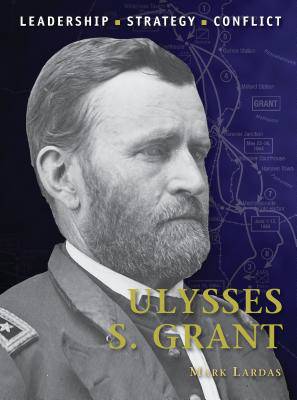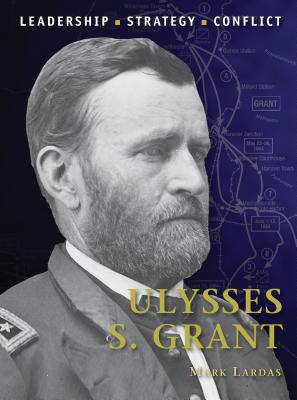
Bedankt voor het vertrouwen het afgelopen jaar! Om jou te bedanken bieden we GRATIS verzending (in België) aan op alles gedurende de hele maand januari.
- Afhalen na 1 uur in een winkel met voorraad
- In januari gratis thuislevering in België
- Ruim aanbod met 7 miljoen producten
Bedankt voor het vertrouwen het afgelopen jaar! Om jou te bedanken bieden we GRATIS verzending (in België) aan op alles gedurende de hele maand januari.
- Afhalen na 1 uur in een winkel met voorraad
- In januari gratis thuislevering in België
- Ruim aanbod met 7 miljoen producten
Zoeken
€ 16,95
+ 33 punten
Omschrijving
Ulysses Grant was the United States greatest general since George Washington. Like Washington, Grant's battlefield performance in the Civil War was the only factor standing between the United States continuing as one, indivisible nation. Grant was the keystone of Union victory, a man whose removal would have resulted in the Union cause crumbling into defeat - and the United States dissolving into a collection of competing sovereign states.
It was not always so clear cut. Am early military career had ended with his resignation for alleged drunkenness, while in civilian life a number of his business ventured foundered leading to the nickname "Useless" Grant. Then the Civil War began. Because he had military experience - he had gone to West Point and served in the Regular Army as an officer - when Grant enlisted in the Army, he became a Captain in an Illinois volunteer regiment. Through sheer competence - and overcoming a bad reputation - he quickly rose to colonel, brigadier general and then major general Grant. After he led the first successful major Union offensive of the war - which resulted in the capture of Forts Henry and Donelson - "Useless" Grant disappeared, replaced by "Unconditional Surrender" Grant. Despite - or perhaps because of - his ability to win battles, Grant had as many enemies among the officer corps of the Union Army as he had in the Confederate Army. Henry Halleck, Grant's immediate superior in the first years of the Civil War, was reluctant to trust Grant in an independent command, despite Grant's ability to win battles when acting independently. When it appeared that Grant would be relieved after Shiloh, President Lincoln, Grant's biggest supporter scotched this attempt. "I can't spare this man," Lincoln said of Grant, "He fights." When fellow generals claimed Grant was drinking again Lincoln is reputed to have replied "find out what he drinks, and send my other commanders a case!"Grant was also criticized as a poor commander. Many claimed Grant was simply a butcher. He often won in an ugly manner. At Shiloh a disastrous first day was followed with a powerhouse counterattack that swept the Confederates from the field. Vicksburg required several attempts - the first few of which were repulsed - but at the end it yielded to Grant. When Grant moved east and attached himself to the Army of the Potomac he faced the Confederacy's greatest general - Robert E. Lee. Grant and Lee fought a series of battles that caused the Confederacy's strategic position to deteriorate with each battle even though Lee fought achieved what should have been a victory on a tactical level.
Yet Grant did win. He was one of the few Union generals that did consistently win. Most of the others that won consistently were Grant's protégées - William T. Sherman, Phillip Sheridan, and James B. McPherson were developed by Grant. Even generals like Joseph Hooker and George Thomas performed better after serving under Grant. Victory had its rewards. In March 1864 Grant was promoted lieutenant-general, the only United States Army officer except for George Washington and Winfield Scott s to achieve that rank. By the end of the war Grant would become the United States Army's first full general since Washington.
Specificaties
Betrokkenen
- Auteur(s):
- Illustrator(s):
- Uitgeverij:
Inhoud
- Aantal bladzijden:
- 64
- Taal:
- Engels
- Reeks:
Eigenschappen
- Productcode (EAN):
- 9781849087339
- Verschijningsdatum:
- 20/11/2012
- Uitvoering:
- Paperback
- Formaat:
- Trade paperback (VS)
- Afmetingen:
- 180 mm x 241 mm
- Gewicht:
- 204 g

Alleen bij Standaard Boekhandel
+ 33 punten op je klantenkaart van Standaard Boekhandel
Beoordelingen
We publiceren alleen reviews die voldoen aan de voorwaarden voor reviews. Bekijk onze voorwaarden voor reviews.









